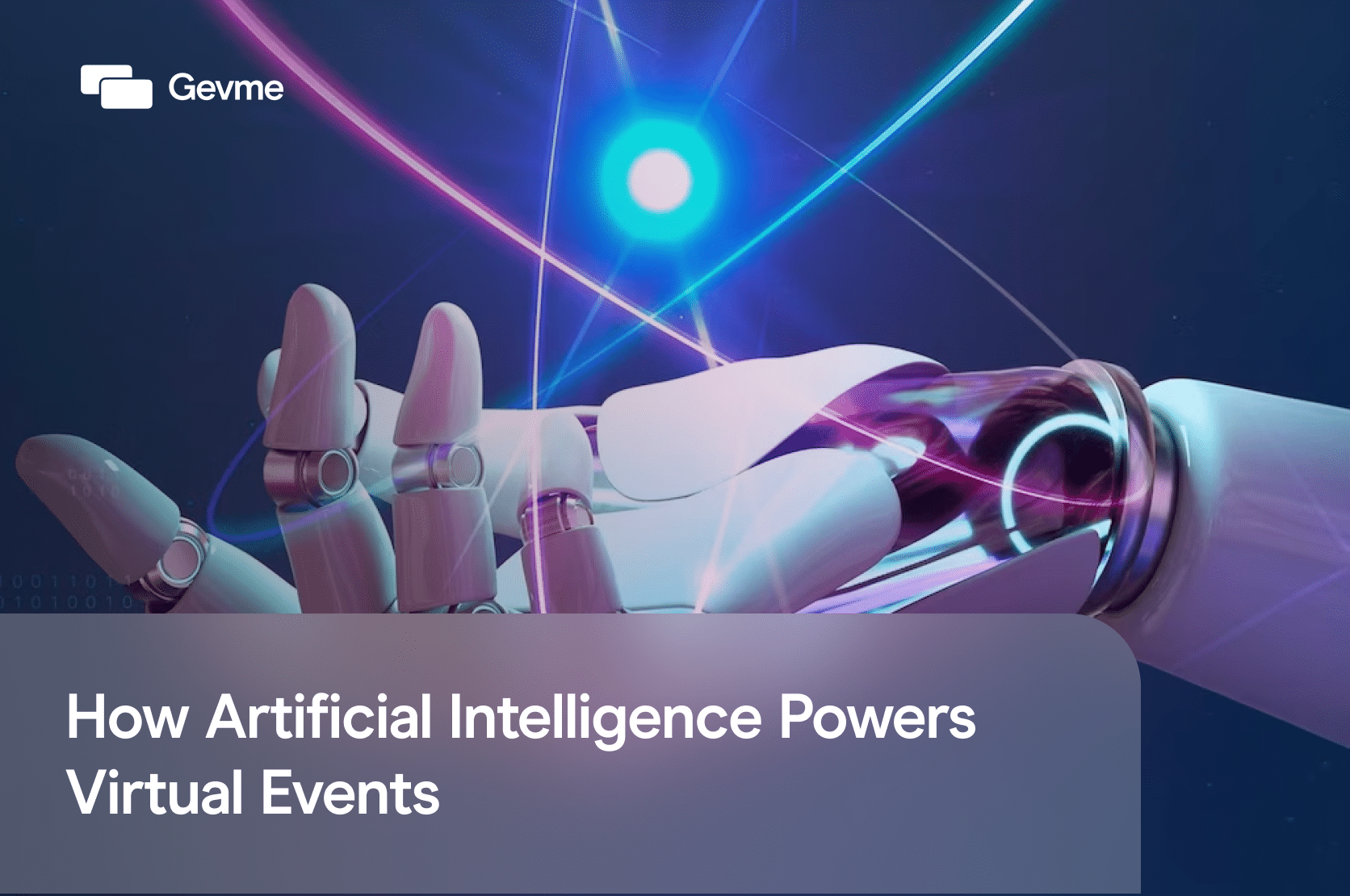The application of artificial intelligence (AI) is prevalent across industries. From homes, healthcare, retail to education – the list is endless.
But, a decade ago, if someone said that events too would be powered by AI in the near future, very few would have believed it to be true.
In the events world, AI is relatively new, yet common. With virtual and hybrid becoming the most-preferred event formats, AI is enabling event organisers to take their events a step ahead.
Clearly, smart events are here and every event planner needs to get adept at hosting these.
The role of AI in events is evolving. In present times, it solves many problems that were once faced by event planners when hosting in-person meetings and events.
Event technology platforms are playing a huge role in filling these gaps by applying AI and Machine Learning (ML technologies) — and making event organising more efficient.
How Artificial Intelligence can help event marketers?
When it comes to event marketing, AI is all about minimising the time taken to find your audience and speeding up the process to promote an event. Every event marketer has to invest considerable time in maximising engagement and finding the best ways to promote the event.
Event marketers can leverage AI to reduce their manual tasks of finding the right set of audience, sponsors and exhibitors. With the right set of data, AI can help event marketers target the right audience.
Social media is a powerful tool to connect with an audience. AI can help event marketers to use relevant data about an audience and send them ads related to the event. It can also enable event marketers to personalise messages for their audience.
But personalising targeted messages is not all that AI takes care of. It’s also relatively easier to personalise the overall event experience through AI.
Let’s see how.
Personalising event experience through AI
A key way to enhance your attendee’s experience at the event is to personalise it. A few years back, personalisation may not have been very easy at in-person events. But with virtual and hybrid events, personalisation is possible through AI.
Your virtual event may comprise multiple sessions, breakout rooms and content that you want your audience to engage with. But when looking at these from an attendee’s perspective, it may be overwhelming to make a choice between which one to choose and which to skip.
With AI, attendees can now get personalised recommendations about the sessions they should attend or the content they can derive value from. Based on the attendee’s data that may have been gathered while registering for the event, AI can detect individual preferences.
Event technology platforms like GEVME use AI to power recommendation engines that provide event attendees recommendations on sessions to attend and find participants and exhibitors to meet.
Check out how attendees at Singapore FinTech Festival 2021 were suggested relevant exhibitors based on their interests at the time of registration here.
Event networking reaches a whole new level with AI
One of the main reasons for your attendees to attend your event is to network with people in the community. By personalising recommendations for event attendees, AI fuels networking opportunities — as people with similar interests get to connect.
Simply put, matchmaking, a critical element of events, can be enhanced using artificial intelligence. Based on the information gathered from attendees and their past behaviours (in the case of returning attendees) AI can connect attendees with fellow attendees or with other event stakeholders for better networking opportunities.
Unlike in-person events, where networking relies heavily on an attendee’s initiative to find like-minded people, AI is making this process even more seamless.
Overall, it allows attendees to maximise the value they derive at your event — which increases their chances to return to your events the next time you invite them.
Event planners can reduce the costs of managing an event with AI
It’s impossible for any event planner to manage the event personally. So, to ensure that all your event stakeholders are able to have a good time at your event, you need a team that can take care of this for you.
This suggests the need to invest in extra resources. But with AI this can be neglected to a great extent.
Instead of taking the responsibility to individually connect with your event stakeholders, you can use AI to drive conversations and take into account the feedback in real-time to enhance your audience’s experience.
Will AI take over the event planner role?
Given that AI is optimising the event experience and is enabling event planners to reduce their workload, does that signal a risk to the role played by event planners?
Probably not.
It’s true that AI has significantly cut the costs of hiring external resources required to manage events and even plays a key role in streamlining the event management process. That said, there are certain facets to event management that require a human touch.
The role of an event planner is multifaceted. This includes delegating tasks to other members of the team, taking decisions and creatively solving problems. AI can empower event planners to do the above more efficiently. But to humanise the event experience, event planners will continue to play a stronger role than AI, at least in the foreseeable future.
Event technology platforms that use AI are now the hottest tools used by event planners to host virtual events that promise maximum ROI.
Try Gevme’s Virtual Event Platform here for free today to host your next AI-powered virtual event.








